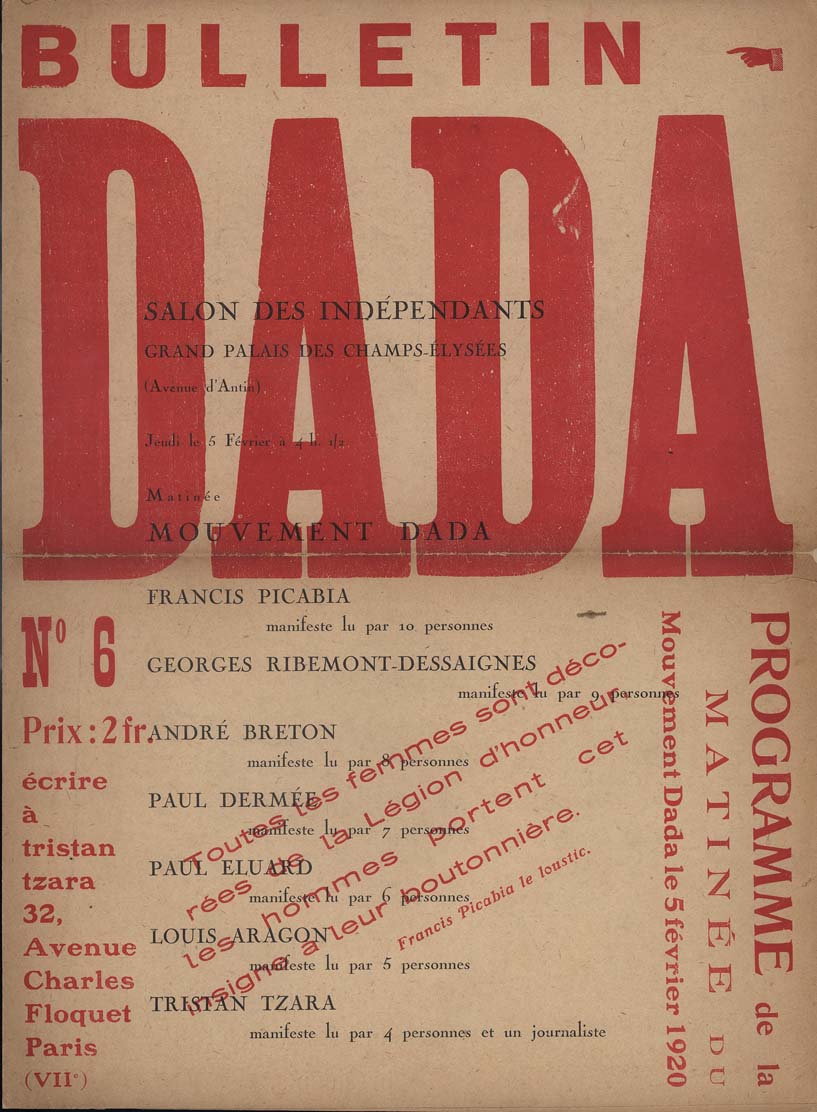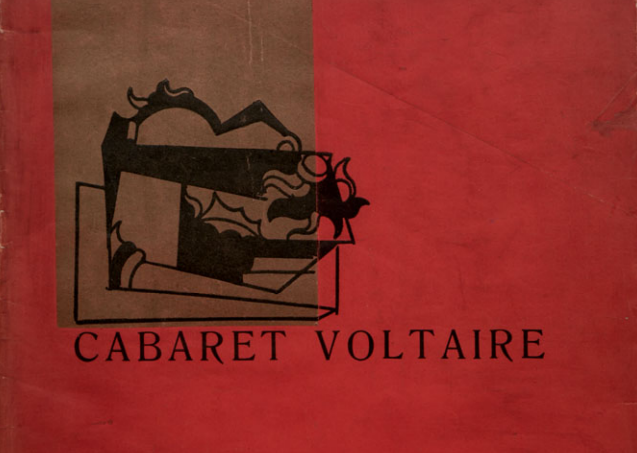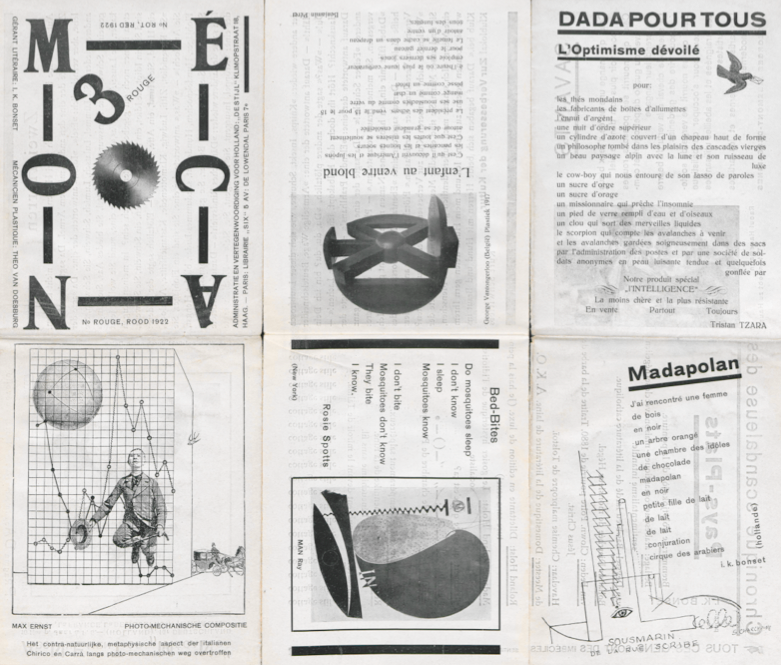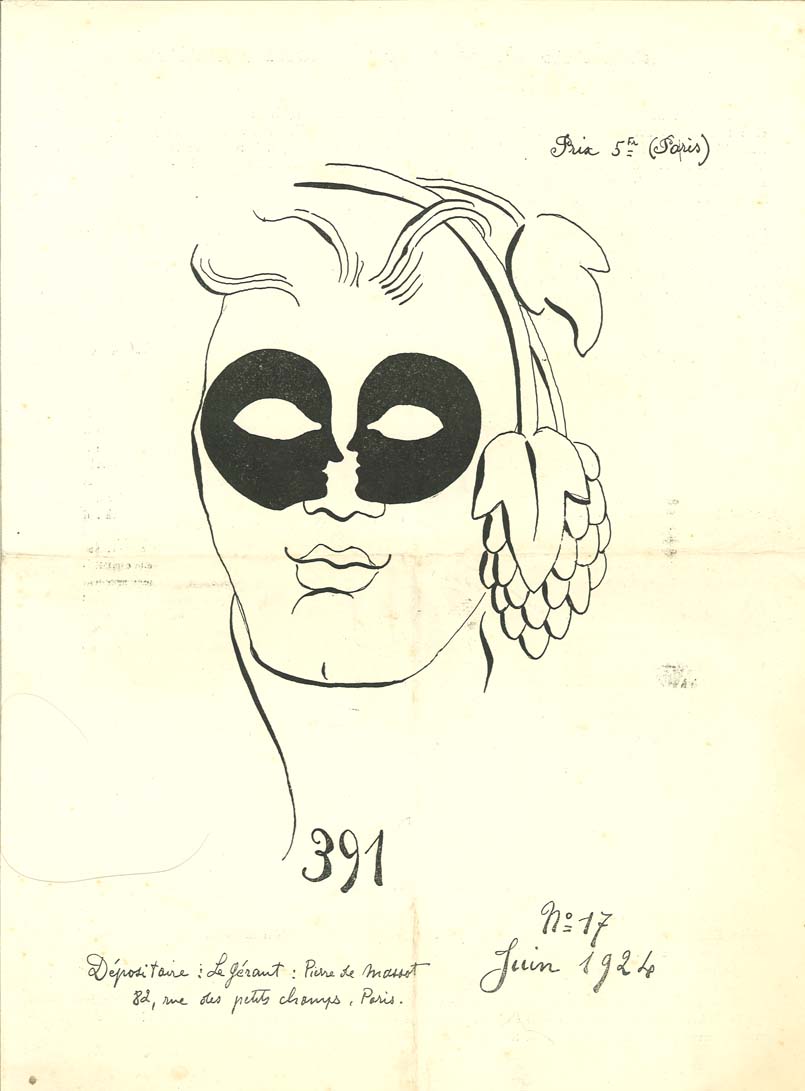
In searching for a treasure trove of publications springing from the avant-garde, deliberately irrational, early 20th-century European “anti-art” art movement known as Dada, where would you first look? Many corners of the world’s historic cultural capitals may come right to mind, but might we suggest the University of Iowa? Even if you don’t feel like traveling to the middle of the United States to plunge into an archive of highly purposeful nonsense, you can view their impressive collection of Dada periodicals (36 in total), books, leaflets, and ephemera online.

“Founded in 1979 as part of the Dada Archive and Research Center, the International Dada Archive is a scholarly resource for the study of the historic Dada movement,” says its front page. The collection contains “works by and about the Dadaists including books, articles, microfilmed manuscript collections, videorecordings, sound recordings, and online resources,” and in its digital form it “provides links to scanned images of original Dada-era publications in the International Dada Archive,” including the influential Dada and 291, as well as “many of the major periodicals of the Dada movement from Zurich, Berlin, Paris, and elsewhere, as well as books, exhibition catalogs, and broadsides by participants in the Dada movement.” (Note: if you click on magazines in the collection, you can download the various pages.)

The history of the archive, written by Timothy Shipe, also addresses an important question: “Why Iowa? One answer lies in a clear affinity between the Dada movement and this University. The internationalist, multilingual, multimedia nature of Dada makes Iowa, with its International Writers’ Program, its Writers’ Workshop, its Center for Global Studies, its Translation Workshop and Center, its dynamic programs in music, dance, art, theater, film, literature, and languages, an especially appropriate place to house the Dada Archive. A brief glance at the history of Dada will make this affinity clear.”

You can learn more about that history from the Dada material we’ve previously featured here on Open Culture: the video series The ABCs of Dada which explains the movement (or at least explains it as well as anyone can hope to); the material we gathered in celebration of its hundredth anniversary last year; and three essential Dadaist films by Hans Richter, Man Ray, and Marcel Duchamp. That will put into clearer context the 36 journals you can peruse in the University of Iowa’s Digital Dada Archive, some of which put out many issues, some of which stopped after the first, and all of which offer a glimpse of an artistic spirit, scattered across several different countries, which flared up briefly but brightly with anarchic energy, destructive creativity, a forward-looking aesthetic sense, and no small amount of humor.
Related Content:
Three Essential Dadaist Films: Groundbreaking Works by Hans Richter, Man Ray & Marcel Duchamp
The ABCs of Dada Explains the Anarchic, Irrational “Anti-Art” Movement of Dadaism
Based in Seoul, Colin Marshall writes and broadcasts on cities and culture. He’s at work on the book The Stateless City: a Walk through 21st-Century Los Angeles, the video series The City in Cinema, the crowdfunded journalism project Where Is the City of the Future?, and the Los Angeles Review of Books’ Korea Blog. Follow him on Twitter at @colinmarshall or on Facebook.

 Open Culture editor
Open Culture editor